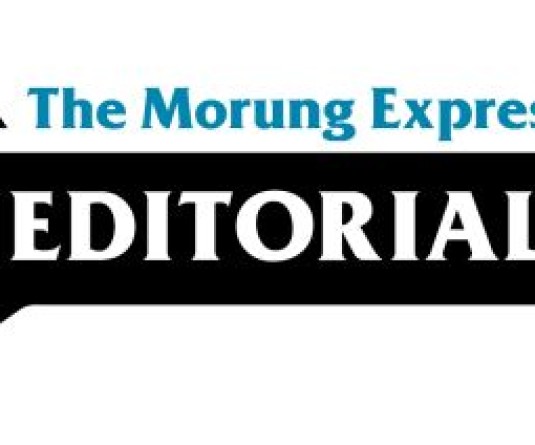
The recent uprising in the Arab world has led to a new thinking among the rulers: the need to make way for political reforms. At the same time the protests, starting from Tunisia to Egypt and now Libya, has also brought to the fore the character of the military in the respective regimes. There is a clear difference in the way the military in say Egypt and Libya has responded to the popular people’s uprising. Te recall, as the protest began to gather momentum, the military in Egypt acted with a firm hand yet showing tact and restraint against the swelling protests. There was not an instance of abuse in the scale that one is witnessing now in Libya where the military under Muammar Gaddafi has led loose a reign of terror by shooting down protestors without any second thought. The military in Egypt has done well to handle a delicate situation with absolute professional conduct, which should be a good lesson for everyone. In fact it was even reported that the Supreme Council of the Egyptian Armed Forces issued an apology after clashes erupted between protesters and the army during an incident. This is in complete variance to the violent and abusing conduct of its Libyan counterpart.
Is it also something to do with the leadership? While Egyptian leader Hosni Mubarak was no saint, yet he was rational enough to realize the aspiration of his people for political change. Mubarak could have also ordered his military to suppress the peaceful protests. The system in Egypt worked in a more benevolent manner. Everyone from the President to the Military respected the situation on the ground. Although Mubarak initially resisted the attempt to oust him, yet he knew that people desired change. He could have also easily resorted to force like Gaddafi did. This only goes to show that leadership in any form of government is very important. We need rational, sensible and democratic leaders not like Gaddafi who has scant respect for even his own people’s life. Hopefully leaders like Gaddafi will be brought to justice for the crimes they have committed.
Coming back to the role of the military or army in any government set up, the nature of its actual functioning differs from country to country based on the values and systems in place. For instance in a democratic country like the United States or India, the military has always been under strict civilian control. They remain accountable to the political establishment and the latter in turn has to answer to Parliament or Congress. The opposite is the case in a country like Pakistan, which has a history of the army taking over the reins of political power. It will be interesting to study where the military in Egypt would stand in terms of its functioning. It is performing an excellent job in this short period of transition. The Egyptian military can neither be seen as completely under civilian control because during the people’s revolution, it demonstrated its own independent authority. It cannot be also equated with the military systems of Pakistan or Myanmar where coup attempts and overthrow of democratically elected governments have been undertaken by the army and its powerful Generals.
By its professional conduct, the military in Egypt has carved out a successful model of governance which is a far cry from coupé tad and army take over. At present it is engaging all sections of people in making constitutional changes and other political reforms before announcing free and fair elections, which will be a government of the people for the people and by the people. It is not just the Parliament or the Government which should have people’s mandate. Even the military must be nurtured into an institution of the people with equal responsibility and accountability.
Is it also something to do with the leadership? While Egyptian leader Hosni Mubarak was no saint, yet he was rational enough to realize the aspiration of his people for political change. Mubarak could have also ordered his military to suppress the peaceful protests. The system in Egypt worked in a more benevolent manner. Everyone from the President to the Military respected the situation on the ground. Although Mubarak initially resisted the attempt to oust him, yet he knew that people desired change. He could have also easily resorted to force like Gaddafi did. This only goes to show that leadership in any form of government is very important. We need rational, sensible and democratic leaders not like Gaddafi who has scant respect for even his own people’s life. Hopefully leaders like Gaddafi will be brought to justice for the crimes they have committed.
Coming back to the role of the military or army in any government set up, the nature of its actual functioning differs from country to country based on the values and systems in place. For instance in a democratic country like the United States or India, the military has always been under strict civilian control. They remain accountable to the political establishment and the latter in turn has to answer to Parliament or Congress. The opposite is the case in a country like Pakistan, which has a history of the army taking over the reins of political power. It will be interesting to study where the military in Egypt would stand in terms of its functioning. It is performing an excellent job in this short period of transition. The Egyptian military can neither be seen as completely under civilian control because during the people’s revolution, it demonstrated its own independent authority. It cannot be also equated with the military systems of Pakistan or Myanmar where coup attempts and overthrow of democratically elected governments have been undertaken by the army and its powerful Generals.
By its professional conduct, the military in Egypt has carved out a successful model of governance which is a far cry from coupé tad and army take over. At present it is engaging all sections of people in making constitutional changes and other political reforms before announcing free and fair elections, which will be a government of the people for the people and by the people. It is not just the Parliament or the Government which should have people’s mandate. Even the military must be nurtured into an institution of the people with equal responsibility and accountability.





